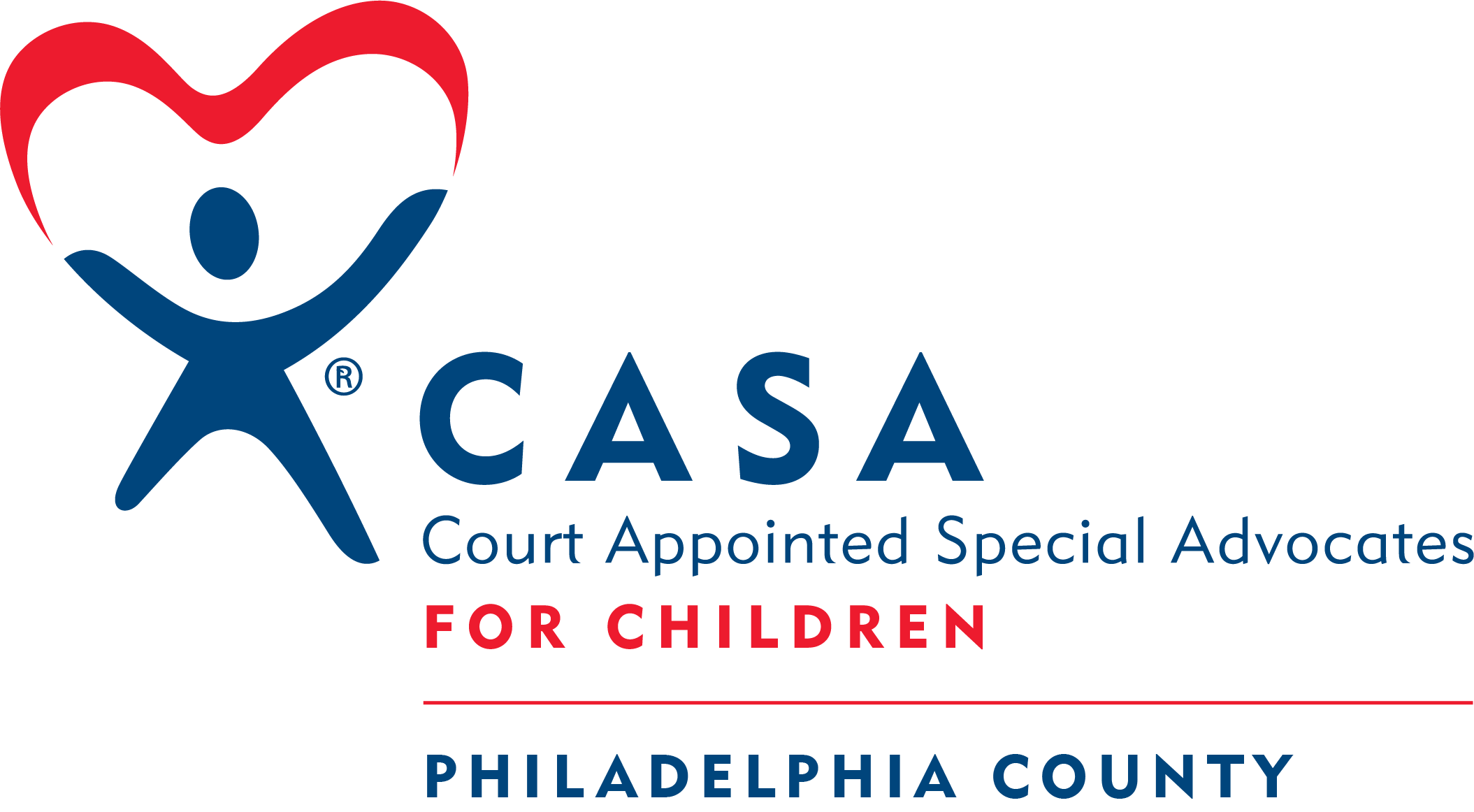Common Questions about Volunteering
What is Court Appointed Special Advocates (CASA) Philadelphia?
What is a CASA volunteer?
What is the role of a CASA volunteer?
To talk to children, parents, family members, social workers, school officials, health providers, foster parents and others involved in the child’s life.
To review school and medical records, as well as documentation from service provider agencies.
To get to know each child’s unique situation and provide informed, objective written reports and oral testimony at court hearings addressing the child’s best interests.
How does a CASA volunteer differ from a social service caseworker?
CASA volunteers are assigned to one case at a time, allowing them to devote more time to the children assigned to them. They do not replace caseworkers, but are independent appointees of the court who complement caseworkers’ efforts to ensure children’s needs are met.
How does a CASA volunteer differ from a Child Advocate Attorney?
CASA volunteers do not provide legal representation in the courtroom. They provide crucial background information and recommendations for the child’s best interests, which assist the child’s attorneys in presenting the case.
Child advocate attorneys work to protect the rights of minors in cases involving divorce, child custody, neglect or abuse, and juvenile court proceedings.
Courts will appoint a child advocate attorney in the following circumstances:
- Neglect or abuse of the minor
- Contested child custody proceedings
- Adoptions
- Termination of parental rights
- Visitation
- Juvenile court proceedings
Can anyone be a CASA volunteer?
CASA volunteers are adults, 21+ from all walks of life and backgrounds. No legal background is required. They are screened closely for objectivity, competence and commitment. Becoming a CASA is a major volunteer commitment and not something that fits everyone’s needs.
If you are a full time student or a current foster parent you will need to wait until these committments are completed before applying.
To learn more and decide if being a CASA is right for you, join us for an information session.
CASA volunteers undergo 30 hours of pre-service training that addresses courtroom procedure, effective advocacy techniques for children, and specific topics ranging from early childhood growth and development to adolescent behavior.
CASA volunteers are paired with a staff supervisor to support and guide advocacy efforts.
When are CASA pre-service trainings?
- We hold 4 pre-service training session a year.
- January, April, July and October.
- January & July are in the daytime.
- April & October are in the evening.
- There are nine, 3-hour sessions held over 5 weeks.
- One session a week is in-person in our office and one is on Zoom.
I am a foster parent. Can I volunteer?
If you are currently a foster parent, you can not become a CASA volunteer. Acting in these two roles at the same time can create a conflict of interest. Children in foster care need committed and caring foster parents as well as strong advocates and we recommend focusing on one way of helping children in foster care at a time. If you were previously a foster parent, or are an adoptive parent and are no longer taking any foster care placements, you can apply to be a CASA.
How much time is required for each case?
CASA volunteers are asked to commit to their assigned case until permanently resolved; on average, cases are open for 24 months.
How many CASA programs are there?
Nationally, there are more than 950 programs and 70,000 volunteers providing advocacy to abused and neglected children.
Pennsylvania has approximately 21 active CASA programs serving 27 county court jurisdictions.
Can a CASA volunteer be appointed to any case?
What is an Education Decision Maker (EDM)?
What is a CASA Education Decision Maker?
A CASA Education Decision Maker (EDM) is a CASA volunteer who has received additional training related to the educational rights and needs of children and youth in foster care. All volunteers at CASA Philadelphia are trained in both CASA and EDM.
Judges appoint CASA to be a child’s EDM because1) there is no pool of EDM’s for the court to appoint, and 2) CASA has an excellent track record of recruiting, training and supporting community volunteers to advocate on behalf of children in foster care.
When are EDM’s appointed?
Note: Appointing an EDM should always be a last resort. Court should not appoint an EDM if there is a parent, guardian or other authorized person ready, willing and available. Disagreement with a parent’s decision not to accept certain services, to decline to evaluate a child or dissent to placing a child in a more restrictive setting is NOT grounds for appointing an EDM.
Who can be an EDM?
How does the role of the CASA EDM differ from the role of the CASA Volunteer?
CASA volunteers are required to submit written court reports and attend all court hearings; CASA EDMs write a brief EDM only court report and attend court only as necessary.
CASA volunteers are required to meet with their child in their home at least once per month; CASA EDMs are only required to see the child in their home or school setting once every three months and attend all school related meetings and conferences and respond to any urgent school issues.
CASA volunteers address a child’s permanency, safety, well-being, health and education; CASA EDMs address a child’s educational needs only.
CASA volunteers have the right to review all of the child’s records, including physical health, mental health and education; CASA EDMs only have the right to review education records.
A CASA volunteer makes recommendations to the court; CASA EDMs are the actual decision- maker for education issues.
